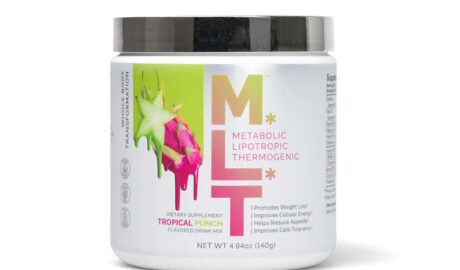Three healthcare experts spoke about efforts to improve patient access and the future of the industry at a panel, moderated by TIME editor in chief Sam Jacobs, at the inaugural TIME100 Health Leadership Forum in New York City on Tuesday night.
Jacobs kicked off the discussion by asking Dr. Raj Panjabi, senior partner at Flagship Pioneering and former White House senior director and special assistant to President Joe Biden, to share any positive lessons we can learn from the 2024 election cycle, with just two weeks to go until Election Day.
“It’s not always that every White House or every presidential cycle prioritizes health care—sometimes it’s hard to get on the agenda. But it’s so clear that in this election that both parties are paying attention to people’s health care,” Panjabi said, acknowledging that the candidates, Republican former President Donald Trump and Democratic Vice President Kamala Harris, have taken very different stances on healthcare issues. “Having health care being front … and center into the presidential election, I think, is a positive thing because it also highlights the pain and the challenges people are facing when it comes to lowering health care costs.”
In the same vein, Jacobs went on to ask Dr. Ziyad Al-Aly, the director of the Clinical Epidemiology Center and chief of the Research and Education Service at the VA St. Louis Healthcare System, if there is anything positive we can take away from the COVID-19 pandemic. Al-Aly, who has studied the short- and long-term effects of COVID-19, said that we learned a lot from the pandemic, such as how viruses can affect people and lead to long-term illnesses.
“I think the silver lining there is learning from the past, learning from the prior experiences, and making sure that we leverage those experiences and that knowledge to help us improve our response in future pandemics,” Al-Aly said.
Al-Aly applauded how scientists were able to develop vaccines against COVID-19 quickly. “It’s really showcased that when we put our mind to it as a nation, we really devote energy and resources to accomplishing one goal,” he said. “I think that’s really a brilliant example of how policymakers could work with scientists to really save the day.”
Lori M. Reilly, chief operating officer at the Pharmaceutical Research and Manufacturers of America (PhRMA), a sponsor of the TIME100 Health Leadership Forum, added that she was concerned that misinformation is leading some people to not vaccinate their children.
She said she worried about the lack of trust in the healthcare industry, particularly in Big Pharma. She shared how she visited her daughter in college over the weekend and another parent there accused the industry of not being interested in curing diseases.
“I feel like any big institution—be it Big Media, Big Insur[ance], Big Pharma—faces a crisis of trust, and we’re seeing that, unfortunately, play out,” Reilly said. “I’m worried that that narrative, or these beliefs—that as an industry, we’re not interested in [curing diseases]—take hold and take root with people.” Reilly pointed to how her industry has done important work on curative or preventative medicines, such as a cervical cancer vaccine.
The panelists also spoke about several other issues the healthcare industry is facing. Reilly expressed concern about the high cost of medication and health insurance deductibles.
“For many patients, that price causes them to walk away from the pharmacy counter because they cannot access and afford it,” Reilly said. “Medicines do no good if they’re sitting on someone’s shelf.”
When discussing solutions to the high cost of American health care, Panjabi said there’s “not a silver bullet,” citing the need for policy reforms. He also pointed to the power that technology and scientific innovation can have in addressing many of the issues in the health care sector. He applauded Heman Bekele, TIME’s 2024 Kid of the Year, who Jacobs had spoken to during Tuesday night’s event just moments before Panjabi, Al-Aly, and Reilly took the stage.
“Shout out to him, because I went to [Johns Hopkins] … and it took me about 10 more years before I could ever say the things he even said as a 15-year-old,” Panjabi said, prompting laughs from the crowd.
The TIME100 Health Leadership Forum was presented by Merck, Deloitte, ŌURA, and PhRMA.






